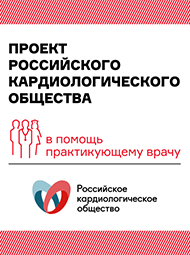Testosterone Tx Tied to Worse Cardiac Outcomes
Testosterone therapy was associated with a higher risk of adverse outcomes in male veterans undergoing coronary angiography, a study showed.
After adjustment for the presence of coronary artery disease, testosterone therapy was associated with a greater risk of all-cause mortality, myocardial infarction, and ischemic stroke 3 years after angiography (25.7% versus 19.9%; HR 1.29, 95% CI 1.04-1.58), according to P. Michael Ho, MD, PhD, of the Department of Veterans Affairs (VA) Eastern Colorado Health Care System in Denver, and colleagues.
The relationship remained consistent among those with and without coronary artery disease, they reported in the Nov. 6 issue of the Journal of the American Medical Association.
These results differ from a previous retrospective VA study of testosterone therapy that found a 39% reduction in mortality risk among patients given testosterone. But that study included a cohort with a lower incidence of heart disease, and used an analysis that didn't account for differences in time from study cohort entry to the initiation of testosterone therapy, the authors wrote.
Steven Nissen, MD, of the Cleveland Clinic, characterized the study results as a red flag that demands "attention not just from physicians but also from regulators."
Nissen, who was not involved the study, noted that he is among a group of physicians who "have been worried about testosterone replacement therapy, which is increasingly commonly prescribed and largely fueled by direct-to-consumer advertising that's urging men to get tested for low testosterone and then to seek replacement."
The risk with that approach, he said, is that clinicians feel compelled to treat a biochemical problem -- low levels of testosterone -- and that treatment could trigger a "clinical problem that's far more grave, which is coronary heart disease."
Finally, Nissen urged caution and common sense, pointing out that a "fall in hormone levels in both men and women is a normal part of aging; it is not necessarily a disease. Making it into a disease may end up causing more harm than good."
The current retrospective study included 8,709 veterans who underwent an angiography at one of 76 VA cardiac catheterization labs between 2005 and 2011 and had a total testosterone level of lower than 300 ng/dL. Of the men included in the study, 1,223 (mean age of 60.6 years) initiated testosterone therapy after their angiography, and 7,486 (mean age of 63.8) did not. Patients were allocated to the testosterone group if records indicated that they'd filled a prescription for a testosterone gel, patch or injections based on pharmacy dispensing data from the VA.
Records were available through the VA Clinical Assessment Reporting and Tracking (CART) Program, a software application that integrates procedural data from the VA cardiac catheterization labs with the VA's electronic medical records system. Patient characteristics and presence or absence of CAD were established through this system.
There were slight differences between the two groups of men -- those who were prescribed testosterone were slightly healthier than those who were not, with the exception of testosterone level and obesity.
Ordinarily, this would raise concerns about prescribing bias, wrote Anne R. Cappola, MD, ScM, in an accompanying editorial. However, "the men receiving testosterone had a higher risk of the composite adverse outcome, which runs counter to what would be anticipated if there was residual confounding from unmeasured advantageous health variables," she said.
Annual prescriptions for testosterone increased more than five-fold from 2000 to 2011. In 2011, the total number of prescriptions numbered 5.3 million and make up a market of 1.6 billion, the authors wrote.
Previous clinical trials have suggested that testosterone therapy improves a number of intermediate outcomes and risk factors. But most of those studies were small, of variable duration, and enrolled patients of differing ages, the authors wrote.
On the other hand, the Testosterone Trial in Older Men study, which included 209 older men with low testosterone levels and limits in mobility, was stopped early after a higher rate of cardiovascular events was found in the group taking testosterone.
The current study was not designed with sufficient power to ascertain cardiovascular event rates, said Cappola, but might provide some guidance for older men considering testosterone therapy.
"What is missing from the literature are data from randomized trials that include a sufficient number of men for an adequate amount of time to assess the long-term benefits and risks of testosterone therapy," said Cappola.
Establishing long-term risks will be difficult, she said. "There is no study involving men that is equivalent to the Women's Health Initiative, nor is it likely that there will be a trial of equal scale," she wrote. Because of this, she said, scientists will have to rely on observational data from existing cohorts of men, as the authors did in the current study.
The big question with the current study, said Cappola, is how generalizable the results are, because the men in the VA system are known to have more co-morbidities and health problems than men in the general population.
But in light of the "mounting evidence of a signal of cardiac risk," cautious prescribing and additional investigation are called for, she said.
There were limitations to the study beyond the question of generalizability. It was an observational study, and the results could have been affected by unmeasured confounding or hidden bias. The authors were unable to establish what time of day testosterone levels were drawn, and this might have resulted in underestimated levels in some cases.
Small differences in the testosterone assays used by different VA hospitals might have affected assessment of patient testosterone levels, the authors wrote. And outcomes were determined by ICD-9 diagnosis codes, not validated by chart review.
Source: www.medpagetoday.com






